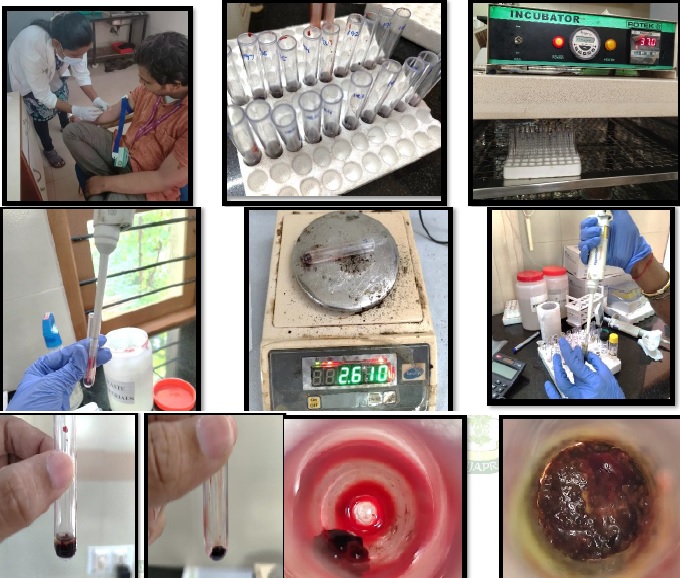In-Vitro Experimental Study on the Anticoagulant Activity of Rakta Pravarthana Churna
DOI:
https://doi.org/10.47070/ijapr.v11i12.3049Keywords:
Rakta pravarthana churna (RPC), Streptokinase, Distilled water, Clot lysis, Anticoagulation potential.Abstract
Coagulation disorders disrupt the delicate balance between clot formation and prevention. Various coagulopathies involve abnormal clotting as a manifestation. Rakta Pravarthana Churna (RPC) is an Ayurvedic formulation designed for external application during Rakta Mokshana to address Apravarthana or clotting tendencies. Aims & Objectives: The in-vitro study aims to evaluate its anticoagulant (thrombolytic) activity using blood samples from healthy human volunteers. Materials & Methods: The clot lysis activity of aqueous and alcohol extracts of Rakta Pravarthana churna at two different concentrations (5% & 20%) along with streptokinase as a positive control and distilled water and alcohol as a negative control was carried out. Results: The aqueous extracts showed clot lysis activity whereas alcoholic extracts did not exhibit evidently significant clot lysis. Discussion: In comparison with positive control (streptokinase), aqueous extract of RPC at 5% concentration showed 10.76% more clot lysis activity, aqueous extract of RPC at 20% concentration showed 14.31% more activity. Conclusion: Aqueous extracts of RPC promote clot dissolution, while alcoholic extracts displayed inhibitory effects. These findings show the complexity of Ayurvedic drug interactions with coagulation processes. The study contributes to the understanding of anticoagulation potential of RPC and its scope for potential therapeutic applications.
Downloads



